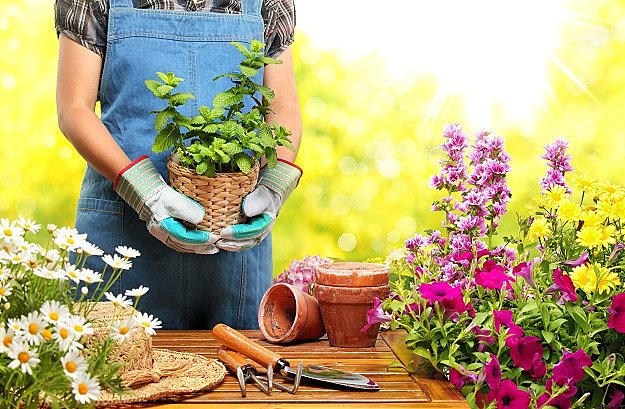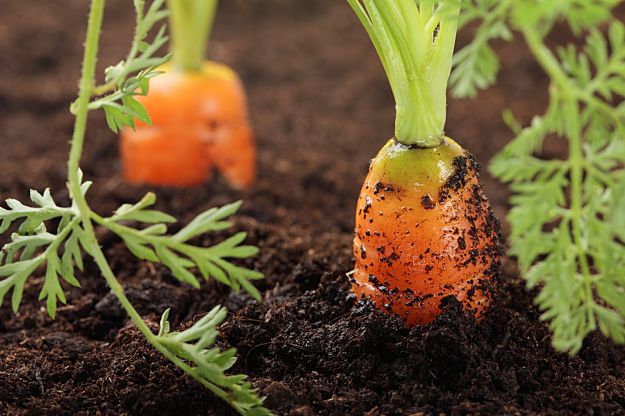Want to grow plants like a pro? If you are, these 5 easy gardening tips will help you out. Growing plants require your love, patience, and care. An exciting adventure that anyone can venture to. Read on and discover the secret on how to become an expert in growing your plants.
Grow Plants Like A Pro With 5 Simple Tips
This post is courtesy of Garden Season and shared with permission.
>I remember when I started to grow plants in pots just to decorate my home. There's just something about indoor plants which enliven the house when fancy decor are just dull and lifeless. Then, I progressed to growing herbs and to my delight, my kitchen has never been the same. A kitchen without some culinary herbs nearby is now a big no-no to me.
If you want that in your household too, check these helpful gardening tips as you read through.
1. Start With Easy-To-Grow Plants
There are plants that require practically little attention. While you may want to get on with the plant world's big leagues, let's try the juniors first. If you want to grow your own food, go with herbs and you'll be wanting more after. For flowers, you can go with the perennial bulbs. As long as they're planted in a loose, sandy, and well-draining soil, they'll be good to go. In the temperate north, plant Crocuses and Snowdrops close to each other in a small plant bed for an all-season flower garden. You can grow Canna Lilies, Caladiums, and Gladioli in the warm south.
If you want to grow an orchard, you'll find rooting an avocado seed from the fruit you bought from the grocery so easy you'll grow more. You'll also find starting lemon seeds from the those you squeezed out of a fruit easy to grow. Most vegetables are easy to grow. Just find out which vegetables are grown in the summer and which veggies prefer the cool fall and winter weather. It's also important to know your hardiness zone to know when to plant a variety of vegetable.
2. Pick A Sunny Location

Although there are plants that prefer shady areas, warmth and sunlight should still be present. The sun is essential to plant growth, only the amount needed in different plants varies. Most vegetables will need the sunlight to grow but sunlight can be intense, most new plants will need protection. Most annual flowering plants love the sun so much their blooms are intensified with the sun. Weeds love the sun too. So while you are on the look out for your growing greenies, watch out for these pesky weeds. Get rid of them then and there before they outgrow your plants.
Seed saving is a great activity you can do this winter season. Check out our tips and always be prepared! ???? https://t.co/GnCzeKcX4P
— Homesteading (@HomesteadingUSA) December 26, 2016
3. The Essence Of A Rich Soil

I'm sure you've heard about composting in the garden before. Gardeners make compost because of the importance of healthy soil to plants. A rich and healthy soil needs to have the right balance of nutrients and minerals to grow. Avoid using unnatural fertilizers, pest repellents, and weed killers. They will disrupt the natural process going on in the soil. If you ever have to deal with pests, weeds, and improving your soil, always do it the natural way. You'll find vegetables grown in healthy and organic soil are healthy and rich as well. When growing plants from seeds, it is best to start them in compost or rich soil to boost growth
4. Sow In Succession
When growing vegetables as your own food, this is how green thumbs do it with success. Even experts know they cannot sow seeds and see them all into maturity. There's always a bad seed or a bad seed batch. Sowing batches of seeds in succession ensure planting success. If one batch gets affected with pests or diseases, you've always got more to go.
Sudden change in weather can affect plants too, so it's really ideal to keep a stock on seedlings. This will also ensure a steady supply of fresh and organic vegetables all-season long.
5. Prune, Prune, Prune
|
One of the essential tasks to maintaining your garden and keeping your plants their best is by pruning. This is cutting through unsightly or dead leaves and branches without actually hurting the plant. In fact, this is ideal for plant growth.
Besides, pruning also helps prevent the spread of plant diseases. By cutting affected parts off from the plant before they jump on to another.
Vegetables like bell peppers and tomatoes will have more yields by pinching off some foliage. Flowers like roses and hydrangeas, on the other hand, will have more blooms with pruning.
Wish to be growing your own food for some time now? Then check this video from Howcast and start growing veggies:
It’s no use preaching how really great plants are. You are here since you know how important and effective they are for a beautiful home, a healthy body, and for a peaceful soul. It’s not hard to grow plants. The hardest part may be starting it. The reservation comes from maintaining them. But that’s where the beauty of gardening comes through — it's in seeing your plants through. With the help of gardeners and green thumbs who went through the same process as you, you can grow plants with these helpful tips, guide, and ideas.
There you have it, my fellow homesteaders! Beginner’s tips to grow plants on your own. Let me know if you have some more ideas. Share it and post in the comments section below.
I hope this topic will be helpful as you start growing plants but if you specifically planned a vegetable garden, then check these tips and ideas for vegetable gardening beginners.
Featured Image Via stcatharines

Leave a Reply